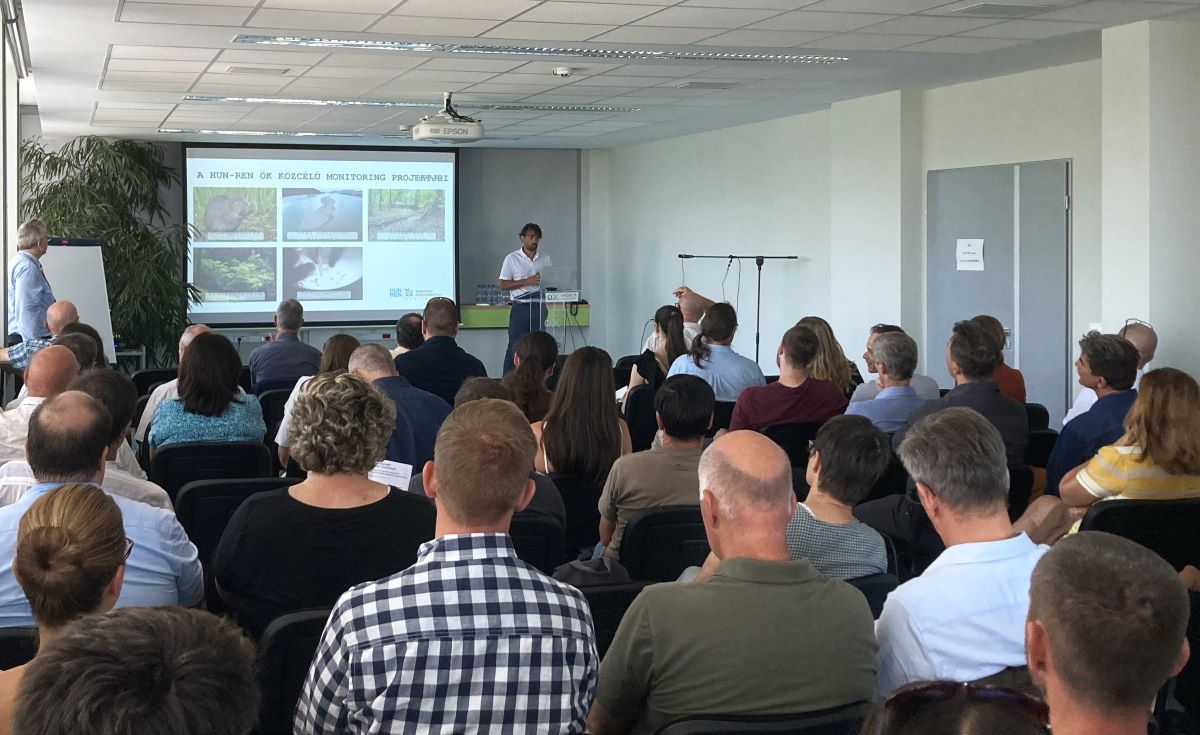
The HUN-REN Centre for Ecological Research organised a workshop on ‘The role of ecological monitoring in understanding Hungary’s key environmental problems and developing evidence-based solutions’ on 2 September 2024. The meeting was attended by 75 participants, including researchers from HUN-REN CER and several research institutions and universities, representatives from the Hungarian Research Network (HUN-REN) Headquarters, and partners from the fields of public nature conservation, public health, water, forestry, NGOs and private companies.
During the morning programme, Director General László Zsolt Garamszegi first presented the mission and the strategic concept of the public monitoring programme of the Research Centre. Ecological monitoring is a scientific activity for public purposes, in which socially, economically and environmentally important phenomena are monitored regularly. The aim is to identify and prevent harmful effects on society, the economy, and the environment as soon as possible, and to support positive processes by analysing and interpreting the data collected. The ecological monitoring activities of the HUN-REN CER mostly cover key gaps that cannot be filled by the programmes of public bodies and cannot be adequately covered by data. We have country-wide monitoring programmes and monitoring systems that operate on a regional basis, but there is also the potential to extend the know-how to a national level. Some of these programmes monitor the status of entire ecosystems, while others focus on specific groups of organisms or species that are key for environmental, social, and economic reasons. The programmes address key areas of relevance to the public sector, specific sectors and society and provide science-based answers to important practical questions.
You can read more about our monitoring programmes here: https://ecolres.hun-ren.hu/tarsadalom/#kozcelu.
During the morning Tamara Szentiványi presented the Mosquito Monitor programme, Péter Ódor and Ferenc Horváth the Forest Reserve Monitoring programme. The three sub-programmes of the River Water Monitoring Programme were then presented by the researchers: Pál Boda presented on the monitoring of drying small rivers, András Abonyi on the monitoring of large rivers, and Erika Juhász on the monitoring of beavers. During the afternoon workshops, the professional discussion continued along these main themes. The topics of the three workshops were: River water monitoring programme – water scarcity, biodiversity crisis, human-wildlife conflicts; Strategic issues in forest reserve monitoring; Mosquito monitoring programme – epidemiological aspects and mosquito control practices. One of the main lessons of the workshop was that cooperation between the public and private sector, and the research community is essential to tackle the environmental problems of our time.
Attachment:
the programme of the workshop


